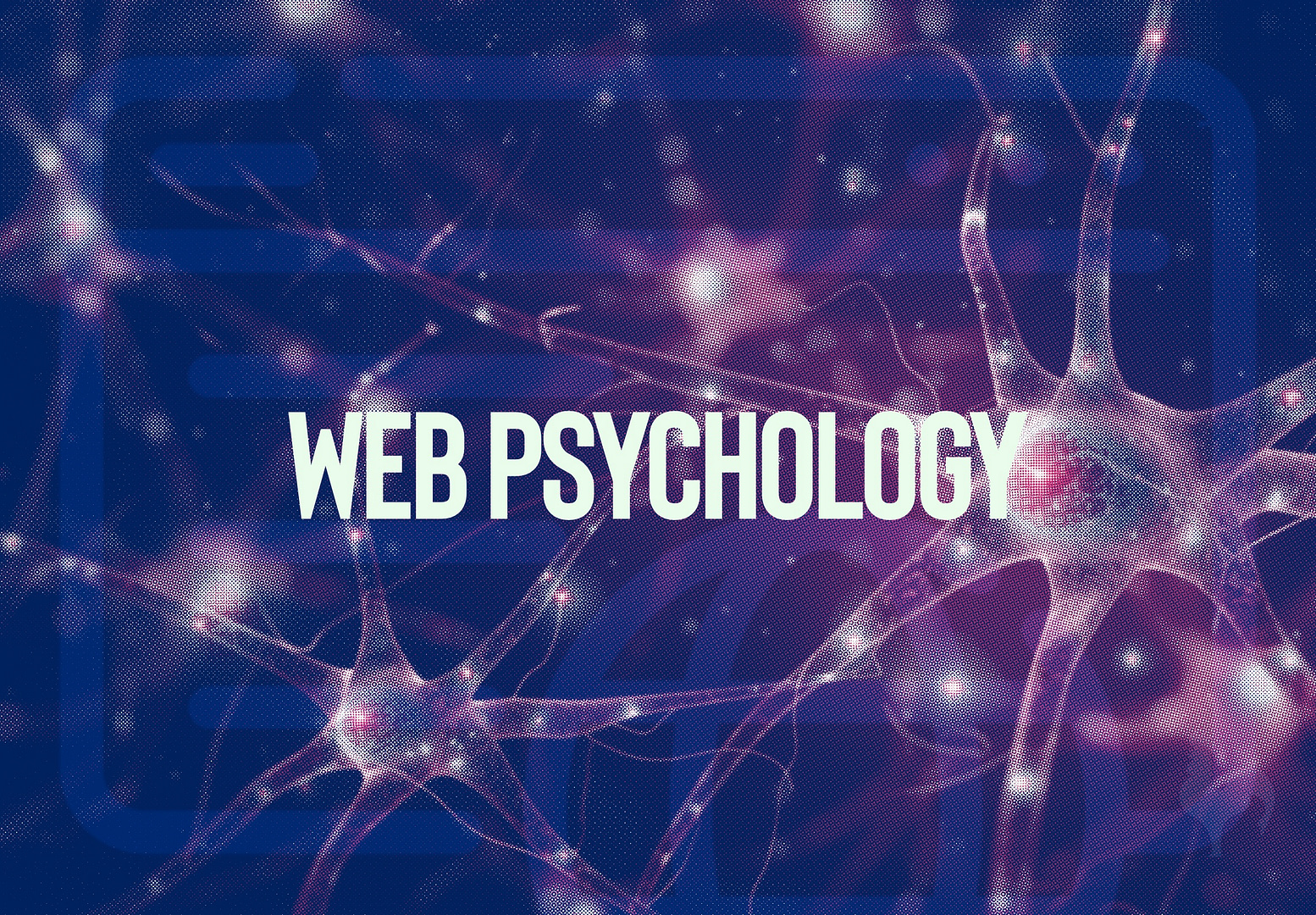Introduction to Web Psychology
Web psychology is a fascinating field that explores the intersection between technology and human behaviour. This is where understanding the motives, triggers, and habits that drive user actions becomes crucial. By gaining insights into the psychology of users, businesses can make strategic decisions that will not only enhance user experience but also shape their digital roadmaps. For instance, businesses can develop personalised marketing campaigns that resonate with their target audience, or they can optimise their website’s user interface based on the psychological principles that drive user behaviour.
Furthermore, web psychology can be applied to a wide range of digital platforms, including social media, e-commerce sites, and mobile applications. This means that businesses can leverage the power of web psychology to improve user engagement and increase their online presence across various digital channels.
In conclusion, web psychology is a vital aspect of the digital landscape that businesses cannot afford to ignore. By understanding the psychology of their users, businesses can develop effective strategies that will not only enhance user experience but also drive their bottom line.
A Deep Dive into Human Behaviour
The digital realm is a complex world of human behaviours and interactions that can be studied and analysed to better understand people’s motivations for their online actions. By delving deeper into these subtleties, businesses can develop a more sophisticated understanding of their audience, enabling them to craft compelling narratives and strategies that resonate with their intended audience. This understanding can also help businesses identify which campaigns are more likely to succeed and which may need to be adjusted to better align with their target audience’s psyche. By focusing on these nuances, businesses can gain a competitive edge in the digital marketplace by better understanding and engaging with their audience.
The Psychology Behind Clicks
Understanding the psychology behind clicks is essential for marketers. The more we understand the rationale behind user intent and interest, the more we can leverage this knowledge to create effective digital campaigns that drive engagement and conversions. There are many factors at play when it comes to clicks, including the colour, shape, placement, and language used on a button or link. By carefully considering and testing each of these elements, we can optimise our click-through rates and ultimately achieve our marketing goals. Additionally, it’s important to recognise that clicks aren’t just a surface-level metric – they can provide valuable insights into the state of our audience’s mindset and their level of engagement with our brand. By analysing the patterns and trends in our click data, we can gain a deeper understanding of our audience’s needs and preferences, and use this information to refine our marketing strategies for even better results.
The Significance of User Experience (UX)
User Experience (UX) plays a crucial role in enhancing the relationship between a user and a digital entity. It is a critical aspect of ensuring that users have a positive experience when interacting with a product, website, or application. A well-crafted UX is like a conversation that not only listens and responds to the user’s needs but also makes them feel understood, valued, and catered to. It can go a long way in creating a meaningful connection between the user and the digital entity.
In today’s competitive digital landscape, creating a beautiful interface is not enough. UX is about understanding the user’s journey, pain points, and preferences and crafting an experience that caters to them. By tapping into the psychology of UX, designers can significantly enhance user engagement and retention. A well-designed UX can leave a lasting impression on the user, leading to increased customer loyalty and brand recognition.
Therefore, it’s critical to invest in UX design to create a seamless and enjoyable experience for the user, resulting in increased user satisfaction, engagement, and ultimately, business growth.
The Evolution of Web Design
A Glimpse Into the Past
Looking back, web design has come a long way from cluttered pages and flashy banners. Earlier, aesthetics often overpowered functionality. But as our understanding of user needs and web psychology evolved, so did the finesse in design techniques.
Modern Design & Psychological Triggers
Today’s web design marries form and function. It employs subtle psychological triggers, leveraging elements like colour theory, typographic hierarchy, and visual pathways to guide user behaviour. A well-designed website doesn’t just look good; it feels intuitive, offering a seamless journey to users.
The Power of Persuasion
Ethical Considerations About Web Psychology
The ability to persuade users in the digital space is potent. However, with great power comes great responsibility. While persuasion can lead to increased engagement and sales, it’s vital to ensure that tactics are transparent, ethical, and respectful of users’ autonomy.
Influencing Buying Decisions
The online shopping realm is rife with psychological tactics. Scarcity principles like “Only 2 items left” or social proof elements like user reviews play on innate human tendencies to guide purchasing decisions. These cues, when harnessed ethically, can significantly amplify conversions.
Case Studies: The Power of Web Psychology
Big Brands & Subtle Tactics
Titans like Amazon and Apple don’t leave user behaviour to chance. From their product layouts to the checkout process, every element is meticulously planned, backed by extensive behavioural research. These subtle, yet impactful tactics underline their digital success stories.
Small Businesses Leveraging Psychological Insights
Web psychology isn’t exclusive to big players. Numerous start-ups and SMEs have witnessed transformative growth by embedding psychological insights into their strategies. It’s a testament to the universal applicability and potency of web psychology.
Preparing for the Future of the Web
The Rise of AI and Personalisation
The digital landscape is rapidly evolving. With AI and machine learning at the helm, we’re entering an era of hyper-personalisation. Imagine a web where every experience is tailored in real-time to individual users, predicting and serving their needs.
Keeping Human Touch Alive
Yet, amidst this whirlwind of technological advancement, the essence of genuine human connection remains invaluable. No algorithm can replicate the warmth of genuine human touch or the resonance of authentic stories. Ensuring these remain central will be the true challenge of the future web.
Conclusion
In the ever-evolving and complex world of the internet, it is becoming increasingly important to understand the psychology behind user behaviour in order to create successful digital experiences. By leveraging psychological insights, businesses and organisations can create more resonant and impactful websites and applications that truly connect with their target audience.
As technology continues to advance, the integration of web psychology will become even more essential for companies looking to establish themselves as leaders in the digital realm. By embracing the principles of web psychology and incorporating them into their strategies, businesses can gain a deeper understanding of their user’s needs and preferences, ultimately leading to more successful outcomes.
Furthermore, the potential applications of web psychology extend beyond just website design and user experience. By understanding how people interact with technology, companies can also improve their marketing strategies, product development, and customer service initiatives. Overall, the benefits of incorporating web psychology into business strategies are vast and far-reaching, making it a crucial area of study for anyone looking to succeed in the digital age.
FAQs
What is web psychology and how does it impact my online business?
Web psychology delves into the behaviours and motivations of internet users. By harnessing these insights, businesses can optimise their digital platforms, enhancing user experience and conversions.
How does understanding the psychology behind clicks benefit my website?
By uncovering the reasons behind user actions, businesses can refine their digital assets, leading to better engagement and conversion rates.
Are there ethical concerns when applying psychological triggers in web design?
While psychological insights can enhance user experience, it’s essential to use them ethically, maintaining transparency and respecting users’ autonomy.
With the rise of AI and personalisation, will the human touch in web design become obsolete?
Even with advanced technology, genuine human connection and empathy will remain central to user experience. They foster trust, loyalty, and genuine brand relationships.







